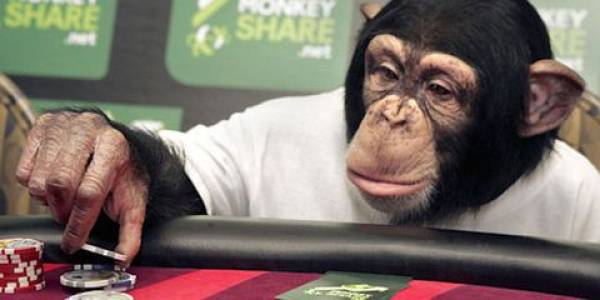Gambling Monkeys Shed New Light on Risk Taking Behavior
Researchers at Johns Hopkins University's Mind/Brain Institute believe they have identified an area of the brain linked to the willingness to make risky decisions.
Their findings were published last Thursday in the journal Current Biology after experimenting with monkeys.
"People think risk attitude is always the same for individuals, but behavior researchers have found this isn't true -- a person can be risk-averse for some things but inclined to risk in others, like someone who saves a lot of money but also skydives," co-author Dr. Veit Stuphorn, an associate professor at Johns Hopkins, said in a press release. "The change in risk attitude happens in the prefrontal cortex and our findings for the first time identify one critically important area."
A supplementary eye field located between areas of responsibility for cognition and higher-order motor control play a prominent role in the level of risky behavior engaged in by the monkeys, researchers determined.
When the area was temporarily deactivated, the monkeys took between 30% and 40% less risks.
"This was truly unexpected, to find a brain section so specifically tied to risk attitude," Stuphorn said. "The monkey's preference markedly changed from really liking risk to liking it much, much less."
When offered a a chance to choose between a 20 percent chance to get 10 milliliters of water and an 80 percent chance of getting just three, they sought the big gamble, the study found.
"The monkeys should rationally choose the 3 milliliters, but they always went with the riskier option," said lead author Xiamomo Chen, a former Johns Hopkins graduate student who is now at Stanford University. "They're like people who like to go to Las Vegas to play the slots, where there's a very high reward but a very low chance of winning it."
The researchers believe the findings should apply to people because they share similar brain structures.
- Jagajeet Chiba, Gambling911.com















